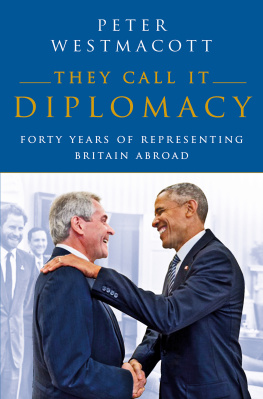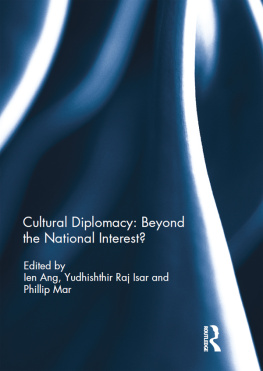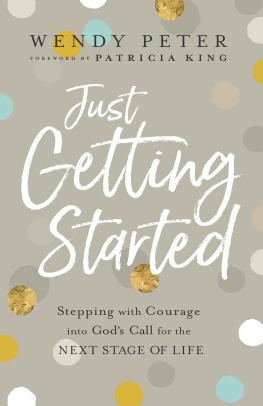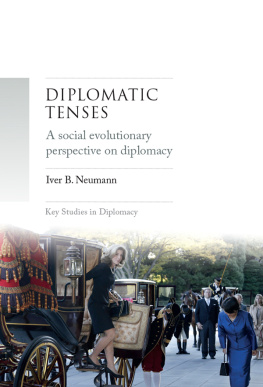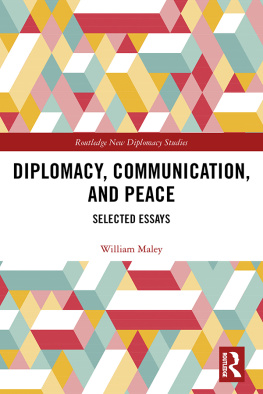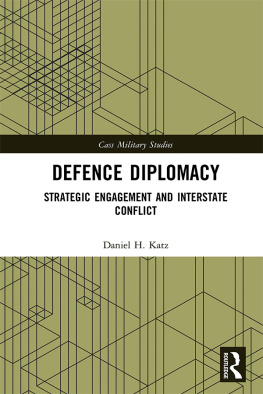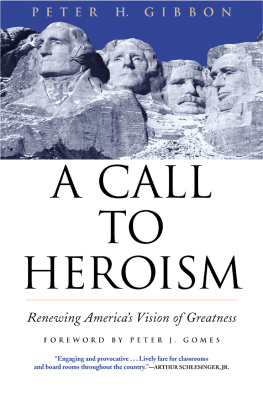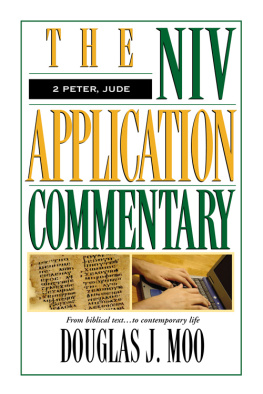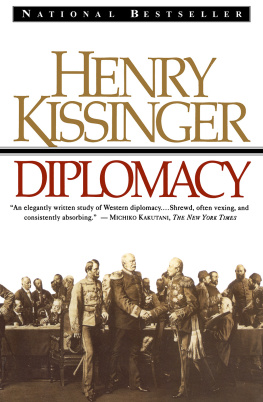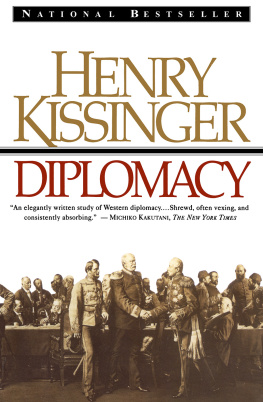Peter Westmacott - They Call It Diplomacy
Here you can read online Peter Westmacott - They Call It Diplomacy full text of the book (entire story) in english for free. Download pdf and epub, get meaning, cover and reviews about this ebook. publisher: Head of Zeus, genre: Politics. Description of the work, (preface) as well as reviews are available. Best literature library LitArk.com created for fans of good reading and offers a wide selection of genres:
Romance novel
Science fiction
Adventure
Detective
Science
History
Home and family
Prose
Art
Politics
Computer
Non-fiction
Religion
Business
Children
Humor
Choose a favorite category and find really read worthwhile books. Enjoy immersion in the world of imagination, feel the emotions of the characters or learn something new for yourself, make an fascinating discovery.
- Book:They Call It Diplomacy
- Author:
- Publisher:Head of Zeus
- Genre:
- Rating:3 / 5
- Favourites:Add to favourites
- Your mark:
- 60
- 1
- 2
- 3
- 4
- 5
They Call It Diplomacy: summary, description and annotation
We offer to read an annotation, description, summary or preface (depends on what the author of the book "They Call It Diplomacy" wrote himself). If you haven't found the necessary information about the book — write in the comments, we will try to find it.
They Call It Diplomacy — read online for free the complete book (whole text) full work
Below is the text of the book, divided by pages. System saving the place of the last page read, allows you to conveniently read the book "They Call It Diplomacy" online for free, without having to search again every time where you left off. Put a bookmark, and you can go to the page where you finished reading at any time.
Font size:
Interval:
Bookmark:

THEY CALL IT
DIPLOMACY
PETER
WESTMACOTT
THEY CALL IT
DIPLOMACY
FORTY YEARS OF REPRESENTING
BRITAIN ABROAD
AN APOLLO BOOK
www.headofzeus.com
An Apollo book
First published in the UK in 2021 by Head of Zeus Ltd
Copyright Peter Westmacott, 2021
The moral right of Peter Westmacott to be identified as the author of this work has been asserted in accordance with the Copyright, Designs and Patents Act of 1988.
All rights reserved. No part of this publication may be reproduced, stored in a retrieval system, or transmitted in any form or by any means, electronic, mechanical, photocopying, recording, or otherwise, without the prior permission of both the copyright owner and the above publisher of this book.
A catalogue record for this book is available from the British Library.
ISBN (HB): 9781800240964
ISBN (E): 9781800240988
Head of Zeus Ltd
58 Hardwick Street
London EC 1 R 4 RG
WWW . HEADOFZEUS . COM
In memory of my parents, Ian and Patricia,
who made it all possible.
Diplomats often write memoirs, sometimes very well. When I left the British Diplomatic Service at the beginning of 2016 after four years as ambassador in Washington, I was asked on a number of occasions to write about my life and career. I had served longer than any other British diplomat in modern times and was fortunate to have done so in fascinating and important countries at key moments in their and our history. But I hesitated. What, I asked myself, was the point?
In the end I decided that there was one, or perhaps three. First, to consider whether, in an age of instant communication, social media, special envoys and mass data of which more had been created in the two years between 2015 and 2017 than in the entire history of mankind the world still needed professional diplomats.
Second, to try and explain what we did, apart from consume Ferrero Rocher chocolates (which we didnt). In early 2016, after my stint in Washington, I spent three months as a fellow at Harvard Universitys Kennedy School of Government. There I found the brilliant, hard-working and earnest students less interested in the foreign policy lessons I was dying to share with them than in answers to more practical questions like: what sort of person becomes a diplomat? How do you join the foreign service? What does successful diplomacy look like?
Third, I wanted to tell a story showing what British diplomacy has been able to achieve, because my experience has been the exact opposite of the view of those Brexiteers who hold that being part of the European Union (EU) caused the UK to surrender its ability to conduct its own foreign policy and that only with Brexit would we be able to rediscover a global role.
Underlying it all was my sense that, in a Brexit and Trumpian world, those of us who care about international relations and relationships were going to have to work harder to maintain a semblance of international order along with respect for truth and the rule of law; and, in the British case, to ensure that the UK remained a player commensurate with the relationships, knowledge and understanding we had acquired over the centuries of some of the worlds most complex and challenging geostrategic problems. The trauma of the 2020 Covid-19 pandemic, in which there was far less international cooperation than there had been even twelve years earlier when we wrestled with the global financial crisis, only strengthened that view.
Perhaps there is a fourth reason. After almost forty-four years doing my best to defend party lines, I am free, within reason, to say what I think.
I joined the Foreign and Commonwealth Office (FCO), as it was still known when I wrote these words, in 1972 at the age of 21, fresh out of university. I had little idea what it was, and even less of what the rest of the world looked like. We hadnt travelled as a family when I was young times were hard in 1950s Britain and food stamps and petrol rationing were part of life in the small village of Edington in Somerset where I was born (in my parents downstairs bedroom) and spent the first ten years of my life.
There was no television, no car and no refrigerator in those early years. At the age of 40 my father not that unusually for people of his generation who had been in the thick of war and come through it physically, at least, unscathed gave up a promising career in the Royal Navy, went to theological college and became a clergyman in the diocese of Bath and Wells in south-west England. He spent three years as a curate in Weston-super-Mare and then a further twenty as vicar of Long Ashton outside Bristol.
He set aside his early retirement lump sum to pay for my two older brothers and me to go to Taunton School. It helped the finances when, to his disbelief, I won a scholarship covering half the fees. I was immediately streamed into the arts rather than science side of the school and left, four years later, without having taken a single lesson in physics, biology, chemistry or zoology.
Those of us studying arts subjects had to do an obligatory one-afternoon-a-week general science course. When I once asked our long-suffering teacher if we could do something useful like learn about the internal combustion engine rather than fool around with a Bunsen burner, so that we would know how to fix the kind of second- or third-hand car many of us aspired to own once we had passed our driving test, I was told that practical science wasnt part of the syllabus.
I wasnt a big reader and struggled with history lessons, which I recall as mainly memorable for having my sideburns tugged sharply, and painfully, upwards by the teacher whenever he didnt get the answer he wanted. Perhaps not surprisingly, I found myself concentrating on languages, which I enjoyed, and wondering what other cultures and countries were really like.
*
At the age of 15 I left Britain for the first time and took myself off for three weeks to Northeim, a small town in Lower Saxony, part of what was then West Germany, to stay with a family, learn some German and begin finding out.
I went by ferry and train, feeling pleased with the progress I had made until I discovered that in Hanover I had got on the express train to Munich rather than the stopping train that visited all stations on the same route. A kindly guard took pity on the terrified English schoolboy with halting German and told me to get off at the next big town and take the local train back up the line. There were no mobile phones in those days, of course, so I worried that the family who had come to meet me might give up when I was not on the right train. Fortunately, the local train arrived before the one I should have taken from Hanover and all was well.
In Northeim, I sometimes went to the local high school, or Gymnasium, with my host, a very kind schoolboy of my age, and helped with English conversation classes. On other days I went travelling with his father, a salesman for industrial bakery equipment who tried to his sons distress to tell me that Hitler had done the world a service by gassing millions of Jews. At least the experience was good for my German. I remember in particular being taken to visit the beautiful medieval university town of Gttingen, which wasnt far away, and the nearby, heavily guarded border with East Germany, with its menacing watchtowers every few hundred yards along the frontier that then separated free, democratic West Germany from the communist East.
*
In my last year at school, like other leavers, I signed up for career weekends arranged by potential employers. I joined one generously arranged at Fanhams Hall, a grand house near Ware in Hertfordshire, by what was then Westminster Bank. At the end, when asked to write an assessment of the weekend, I did so but also cheekily asked whether the bank would like to find me a job in France for the nine months I would have spare between school and university. I was staying on for an extra term after taking my A levels to sit the Oxford University entrance exam and liked the idea of speaking some French and earning a little money.
Font size:
Interval:
Bookmark:
Similar books «They Call It Diplomacy»
Look at similar books to They Call It Diplomacy. We have selected literature similar in name and meaning in the hope of providing readers with more options to find new, interesting, not yet read works.
Discussion, reviews of the book They Call It Diplomacy and just readers' own opinions. Leave your comments, write what you think about the work, its meaning or the main characters. Specify what exactly you liked and what you didn't like, and why you think so.

